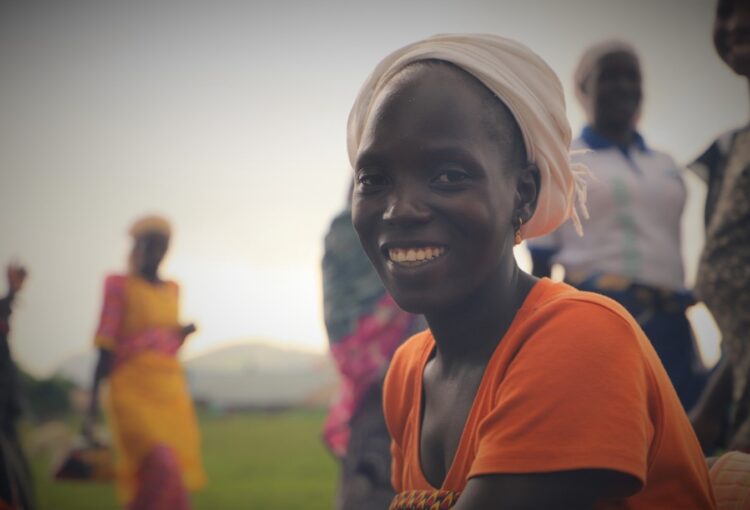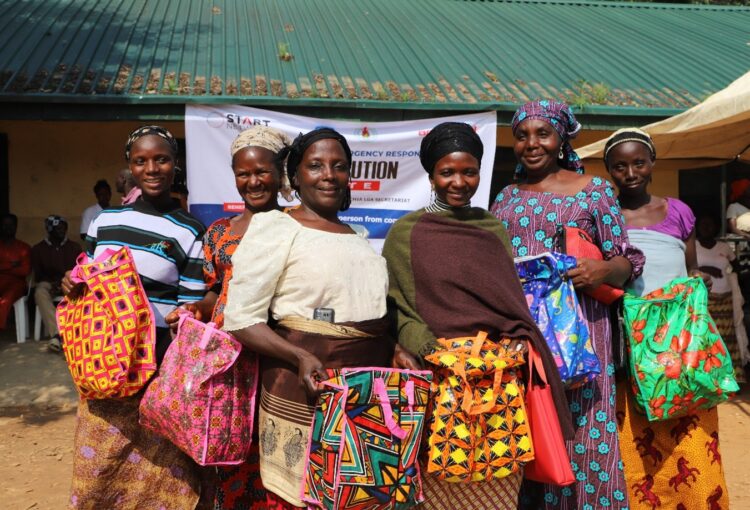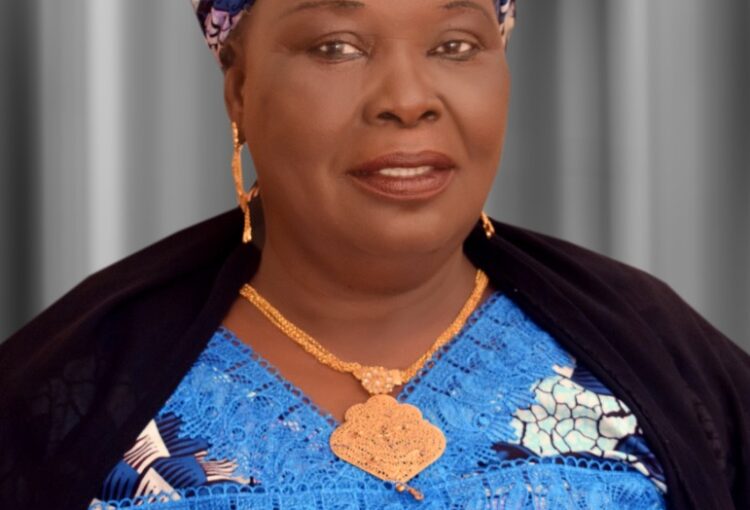How the journey began
In 2019, ActionAid Nigeria began implementing the MATAI project across 57 communities in AMAC, Abaji, Kuje, Kwali, and Gwagwalada Area Councils of Nigeria’s federal capital. These communities believe that twins and other multiple-birth babies, children born after twins or those with albinism, down syndrome, cerebral palsy, abnormal teeth growth (upper teeth first) birth defects, and babies whose mothers die while nursing them are considered to be evil and must be killed – this belief is gradually changing.
In the last 26 years, Vine Heritage Home (VHH), Kuje, situated within the house of its founders, Pst Steven and Chinwe Olusola, has been a haven for these children. ‘‘We started in our own house with a twin, then another twin and the numbers continued to grow. With the continued increase, it became imperative to expand our home, so more buildings were added to the existing one, yet it wasn’t enough as the children grew to 158.’’ Pastor Olusola Steven said.
Raising Funds for MATAI
With the four hundred and ninety-five thousand euros funding secured from the European Union and a co-funding of fifty-five thousand euros by ActionAid Nigeria, the race to raise more funds to support VHH began.
‘‘The children’s stories and the quest to help them live a life of dignity were our motivation every time we had to pitch to organisations or individuals for donation. At the onset, Community Sponsorship also donated two million naira but more needed to be done. There was a whole list of things we were grappling with, such as the purchase of a permanent site and the construction of their new home and a nursery, nutritional support, and most importantly, abolishing the practice in the communities, amongst others.’’ Thelma Thani, Resource Mobilisation Coordinator.
Challenges and Successes
‘’COVID-19 was one of the challenges that hit differently. All activities were halted. We couldn’t continue with the sensitisation in practicing communities, our goal of completing the construction of the permanent site on time was also halted, the initial cost of things planned sky-rocketed, the focus of donors shifted to the pandemic, and our support for the home also drifted towards safety and survival amidst the pandemic.’’ Tommy Ubong, MATAI Project Coordinator hinted.
Despite the setback, in January 2021, the parents of a set of triplets rescued by the VHH four years earlier came back for their children with the community representative. The parents are now committed to protecting their children and are being monitored by the National Human Rights Commission. In addition, twenty community advocates against infanticide who go around the practicing communities were trained on child’s rights and advocacy. Fifty-seven traditional birth attendants were also trained in providing better services using approved manuals from the National Primary Health Care Development Agency and community health influencers, promoters, and services.
Where are we?
In May 2022, the construction of the new permanent site comprising gender-sensitive dormitories, a nursery, a hall, and a clinic was completed and handed over to Vine Heritage Home on 2022 children’s day by the Head of EU delegation to Nigeria and ECOWAS, Amb. Samuela Isopi.
What next?
Mobilising Action Towards the Abolishment of Infanticide continues. ActionAid is committed to working with various MDAs, corporates, and individuals to ensure that all practicing communities end the barbaric practice, equip the children’s new home, and help VHH become self-sustaining. ActionAid Nigeria is working to raise eighty-seven million naira towards all of these as part of phase 2 of the MATAI project.
ActionAid truly appreciates all corporate organisations and community sponsors who donated towards this project. Without you, we wouldn’t have achieved all we did.
If you’d like to donate towards any of our outstanding activities, please call 07007070700 for more information and donations can also be made to ActionAid Nigeria’s Community Sponsorship GTBank 0216379681



